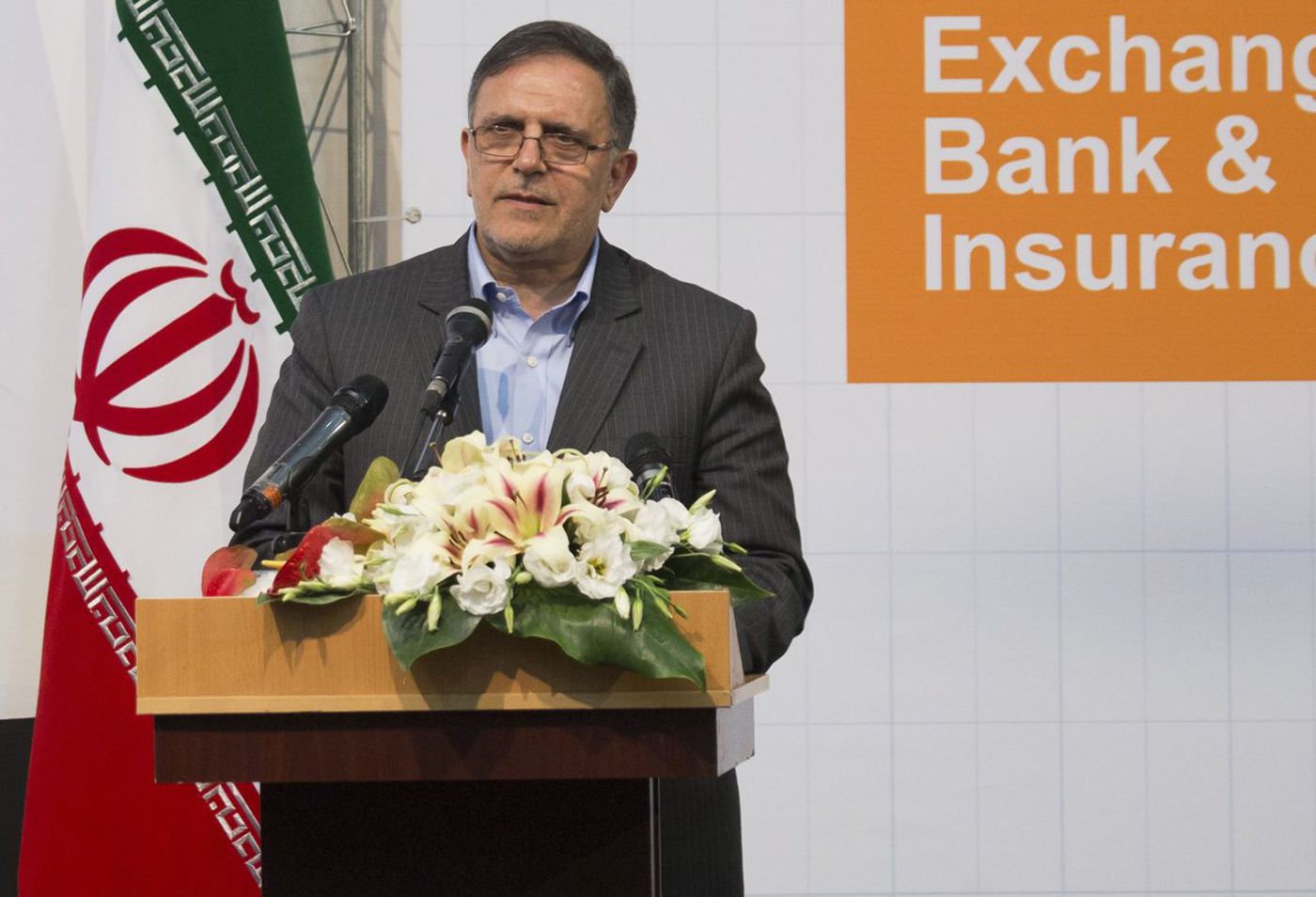The Iranian foreign minister has criticized U.S. sanctions imposed on the Central Bank of Iran’s governor, a week after U.S. President Donald Trump abandoned the Joint Comprehensive Plan of Action (JCPOA), better known as the nuclear deal, which was signed in 2015 between Iran and six world powers.
"It seems that the reason behind this sanction is America's anger from the current circumstances, and we should expect more and more similar angry movements by Americans," Iranian Foreign Minister Mohammad Javad Zarif said following a meeting with his French, British and German counterparts and the EU Foreign Policy Chief Federica Mogherini in Brussels, according to Iranian Student’s News Agency.
On Tuesday, the U.S. Treasury Department’s Office of Foreign Assets Control imposed sanctions on the Iran Central Bank Governor Valiollah Seif, and Ali Tarzali, the assistant director for International Department at the bank. Also implicated were an Iraq-based bank and its chairman and a key Hezbollah official, all whom have allegedly “moved millions of dollars” on behalf of Iran’s Qods Force that operates as part of the Islamic Revolution Guard Corps (IRGC). All were labeled Specially Designated Global Terrorists, pursuant to Executive Order 13224, which targets terrorists and those providing support to terrorists or acts of terrorism. The U.S. government considers the IRGC and Hezbollah to be terrorist organizations.
U.S. Treasury Secretary Steven Mnuchin accused bank chief Valiollah Seif of covertly funneling money on behalf of the Quds Force, which is an elite unit in charge of IRGC’s overseas operations, through Al-Bilad Islamic Bank, “to enrich and support the violent and radical agenda of Hezbollah, according to a May 15 Reuters report.
Zarif called his talks with European representatives regarding maintaining the nuclear agreement as “good and constructive.”
“Europeans committed to do their best to implement the terms of agreements reached during the meeting,” Iran’s foreign minister said. “We have started working to reach the guarantees. Remaining sides to the Joint Comprehensive Plan of Action should ensure Tehran’s interests will be protected.”
The JCPOA, which was agreed during the Obama administration, is widely credited as having allowed Iran to re-engage with world trade, especially to develop closer banking cooperation with European countries. After U.S. President Donald Trump’s announcement on May 8 that the U.S. will be pulling out of the JCPOA, Iran and the remaining parties – Russia, China, Britain, France and Germany – launched negotiations to save their portions of the deal.
The U.S. has for long accused Iran of sponsoring terrorism and seeking nuclear weapons. Throughout his presidential campaign, Donald Trump was open about his skepticism regarding the deal, saying he would abandon it if elected president. He increasingly applied pressure on Iran since taking office and leading up to his decision.
In August 2017, the U.S. government imposed sanctions on Iran that focused on its ballistic missile program and the IRGC, which is considered Iran’s most powerful security organization. The IRGC has control over large swaths of the Iranian economy and a huge influence on its political system.
Iran and Hezbollah have increased their political clout in Syria, where Hezbollah has its fighters deployed in the southern part of the country, including an infantry army equipped with rockets, tanks, and elite forces. The Israeli government believes that Hezbollah has been struggling to get a hold of weapons that could be used in a future war against Israel, resulting in the Jewish state carrying out dozens of airstrikes on Iran and Hezbollah targets inside of Syria. Israel has vowed to not let Iran nor Hezbollah create a permanent presence in Syria.







 Azerbaijan and Armenia started the process of demarcation of their border on Tuesday, with the installation of the first border markers based on ge...
Azerbaijan and Armenia started the process of demarcation of their border on Tuesday, with the installation of the first border markers based on ge...
 President Aliyev emphasized the critical role of the North-South Transport Corridor in fostering transport cooperation between Azerbaijan and Russi...
President Aliyev emphasized the critical role of the North-South Transport Corridor in fostering transport cooperation between Azerbaijan and Russi...
 Armenian sappers commenced on Monday mine-clearance operations in the territories adjacent to the Saint Mary Church in village of Voskepar (Armenia...
Armenian sappers commenced on Monday mine-clearance operations in the territories adjacent to the Saint Mary Church in village of Voskepar (Armenia...
 Russian Foreign Minister Sergei Lavrov has reasserted that Moscow has no intentions to stop the fighting in Ukraine, even if peace talks commence.
Russian Foreign Minister Sergei Lavrov has reasserted that Moscow has no intentions to stop the fighting in Ukraine, even if peace talks commence.



